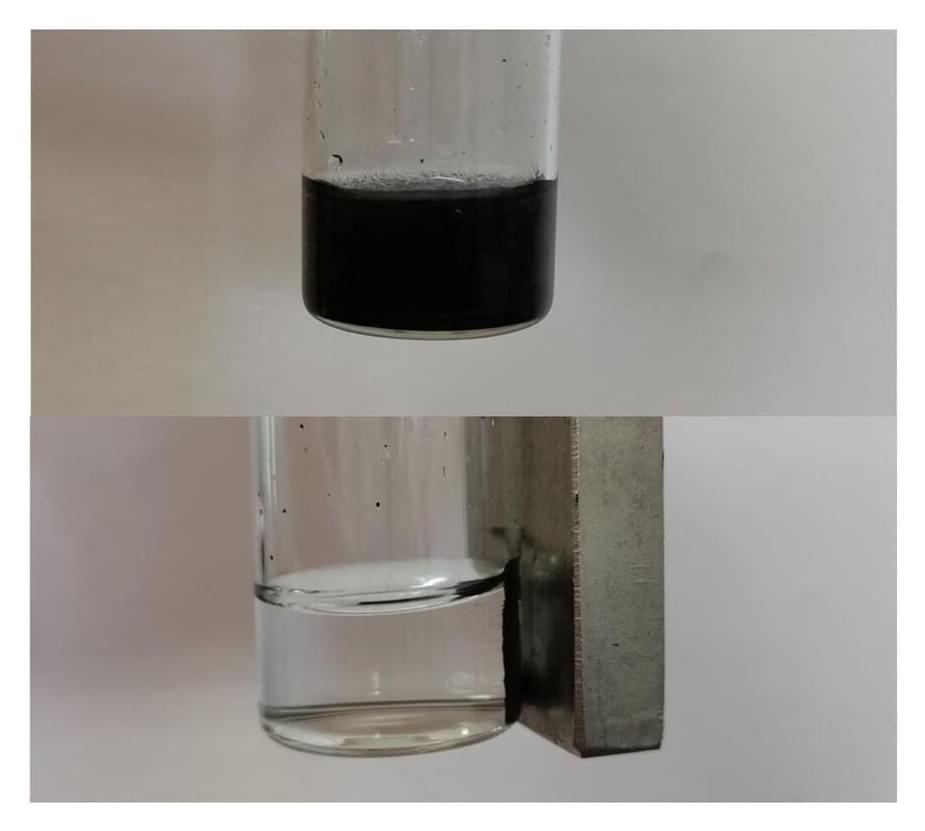The ‘Escobar’ malware has so far targeted customers from 190 financial institutions across 18 different countries. Specific details related to the country and institutions have not been revealed.
Category: finance – Page 86

The Silicon Valley fallout from waging economic war against Russia
As the U.S. corporate world continues its withdrawal from Russia due to the invasion of Ukraine, a growing stigma against anything Russian is reverberating in Silicon Valley as tech start-ups and venture capital firms reassess their exposure and limit risks.
DoorDash and GrubHub recently cancelled deals with now-shut U.S. food delivery start-ups launched by Russian founders. The Massachusetts Institute of Technology pulled out of a multi-year partnership with Moscow’s Skolkovo Institute of Science and Technology, while Index Ventures halted further deals in the country.
For Silicon Valley, the issues with Russian business run to the heart of immigrant founder-led culture and a global world of institutional investors that in recent years sought more access to top VC ideas.
The World in 2300: Top 9 Future Technologies
This video covers the world in 2,300 and its future technologies. Watch this next video about the world in 2200: https://bit.ly/3htaWEr.
► BlockFi: Get Up To $250 In Bitcoin: https://bit.ly/3rPOf1V
► M1 Finance: Open A Roth IRA And Get Up To $500: https://bit.ly/3KHZvq0
► Jarvis AI: Write 5x Faster With Artificial Intelligence: https://bit.ly/3HbfvhO
► SurfShark: Secure Your Digital Life (83% Off): https://surfshark.deals/BUSINESSTECH
► Udacity: 75% Off All Courses (Biggest Discount Ever): https://bit.ly/3j9pIRZ
► Brilliant: Learn Science And Math Interactively (20% Off): https://bit.ly/3HAznLL
► Business Ideas Academy: Start A Business You Love: https://bit.ly/3KI7B1S
SOURCES:
• https://www.futuretimeline.net.
• The Future of Humanity (Michio Kaku): https://amzn.to/3Gz8ffA
• The Singularity Is Near: When Humans Transcend Biology (Ray Kurzweil): https://amzn.to/3ftOhXI
• Physics of the Future (Michio Kaku): https://amzn.to/33NP7f7
• https://science.howstuffworks.com/science-vs-myth/everyday-m…tation.htm.
Patreon Page: https://www.patreon.com/futurebusinesstech.
Official Discord Server: https://discord.gg/R8cYEWpCzK
💡 On this channel, I explain the following concepts:
• Future and emerging technologies.
• Future and emerging trends related to technology.
• The connection between Science Fiction concepts and reality.
SUBSCRIBE: https://bit.ly/3geLDGO
Disclaimer:

Billionaire Space Tourism Has Become Insufferable
Last summer, at a time when the pandemic had strained many people’s finances, inflation was rising and unemployment was still high, the sight of the richest man in the world joyriding in space hit a nerve. On July 20 Amazon founder Jeff Bezos rode to the edge of space onboard a rocket built by his company Blue Origin. A few weeks earlier ProPublica had revealed that he did not pay any income taxes for two years, and in other years he paid a tax rate of just 0.98 percent. To many watching, it rang hollow when Bezos thanked Amazon’s workers, whose low-paid labor had enriched him enough to start his own rocket company, even though Amazon had quashed workers’ efforts to unionize several months before. The fact that another billionaire, Richard Branson, had also launched himself onboard his own company’s rocket just a week earlier did not help.
COVID changed many people’s willingness to shrug off the excesses of the rich. The pandemic drew an impossible-to-ignore distinction between those who can literally escape our world and the rest of us stuck on the ground confronting the ills of Earth: racism, climate change, global diseases. Even several members of Congress expressed their disapproval of Bezos. “Space travel isn’t a tax-free holiday for the wealthy,” said Representative Earl Blumenauer of Oregon. Bezos and Branson putting the spotlight on themselves as passengers served to downplay the work that hundreds of scientists and engineers at Blue Origin and Virgin Galactic had put into designing, building and testing their spacecraft. It also masked the reality that advances in private spaceflight really could eventually pay off in greater access to space for all and more opportunities for scientific research that could benefit everyone. All their flights did was give the impression that space—historically seen as a brave pursuit for the good of all humankind—has just become another playground for the 0.0000001 percent.

US airlines cutting back on flights over skyrocketing oil prices
US airlines have begun to scale back the number of flights they are offering to customers, citing the skyrocketing cost of fuel that has been exacerbated by the Russian invasion of Ukraine.
Alaska Air said it will reduce its offerings by as much as 5% in the first half of this year citing “the sharp rise in fuel costs.” Allegiant Airlines will cut flights by somewhere between 5% and 10% in the second quarter, the company’s chief financial officer said.
Allegiant’s financial chief said the company plans to scale back its flight schedule primarily during times of weaker demand. His comments were reported by Bloomberg News.

Microsoft Azure ‘AutoWarp’ Bug Could Have Let Attackers Access Customers’ Accounts
Details have been disclosed about a now-addressed critical vulnerability in Microsoft’s Azure Automation service that could have permitted unauthorized access to other Azure customer accounts and take over control.
“This attack could mean full control over resources and data belonging to the targeted account, depending on the permissions assigned by the customer,” Orca Security researcher Yanir Tsarimi said in a report published Monday.
The flaw potentially put several entities at risk, including an unnamed telecommunications company, two car manufacturers, a banking conglomerate, and big four accounting firms, among others, the Israeli cloud infrastructure security company added.

‘A Bigger Earthquake Than SWIFT’—What The Russia PayPal, Visa And Mastercard Ban Means For Bitcoin And Crypto Amid Extreme Price Swings
Bitcoin and cryptocurrencies have been pushed into the spotlight over the last week as global financial sanctions on Russia come into force.
The bitcoin price had bounced higher on expectations sanctioned Russians could turn to bitcoin and crypto but fell back as following comments from Fed chair Jerome Powell.

A ‘greener’ way to clean wastewater treatment filters
Membrane filters don’t require much energy to purify water, making them popular for wastewater treatment. To keep these materials in tip-top condition, they’re commonly cleaned with large amounts of strong chemicals, but some of these agents destroy the membranes in the process. Now, researchers reporting in ACS Applied Materials & Interfaces have developed reusable nanoparticle catalysts that incorporate glucose to help efficiently break down contaminants inside these filters without damaging them.
Typically, dirty wastewater filters are unclogged with strong acids, bases or oxidants. Chlorine-containing oxidants such as bleach can break down the most stubborn organic debris. But they also damage polyamide membranes, which are in most commercial nanofiltration systems, and they produce toxic byproducts. A milder alternative to bleach is hydrogen peroxide, but it decomposes contaminants slowly.
Previously, scientists have combined hydrogen peroxide with iron oxide to form hydroxyl radicals that improve hydrogen peroxide’s efficiency in a process known as the Fenton reaction. Yet in order for the Fenton reaction to clean filters, extra hydrogen peroxide and acid are needed, increasing financial and environmental costs. One way to avoid these additional chemicals is to use the enzyme glucose oxidase, which simultaneously forms hydrogen peroxide and gluconic acid from glucose and oxygen. So, Jianquan Luo and colleagues wanted to combine glucose oxidase and iron oxide nanoparticles into a system that catalyzes the Fenton-based breakdown of contaminants, creating an efficient and delicate cleaning system for membrane filters.

Crypto Allows Ukraine to ‘Operate Internationally,’ Official Says
Amid ongoing hostilities with advancing Russian forces, Ukraine has been increasingly relying on cryptocurrency donations to solve humanitarian problems and finance its defense efforts. Crypto helps the country to receive and quickly distribute money and operate internationally, a high-ranking government official has indicated.
Ukraine Accepts, Spends Millions in Crypto, Deputy Minister Reveals
Since the Russian military assault started, Ukraine has been actively seeking financial support in the form of crypto donations. “It’s a very rapid way to get a payment — in times like that you can’t just wait for days to get money and then you have to distribute them,” the country’s Deputy Minister of Digital Transformation Oleksandr Bornyakov said in an interview.
